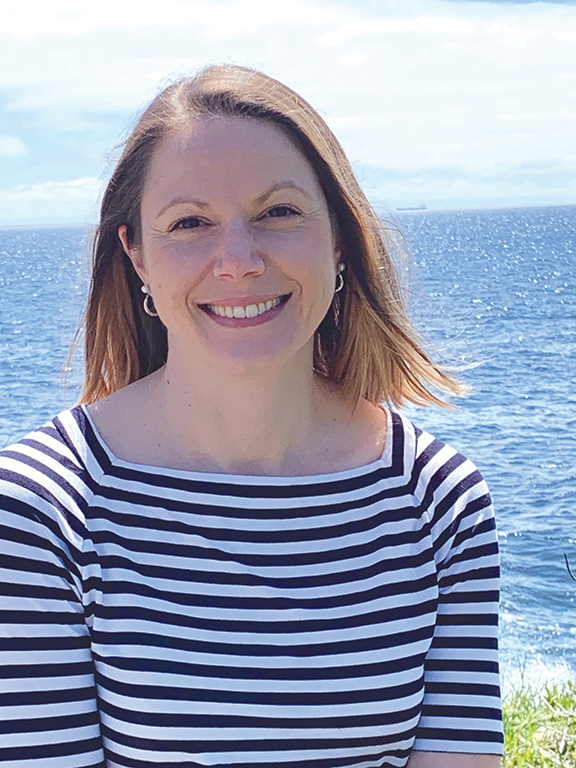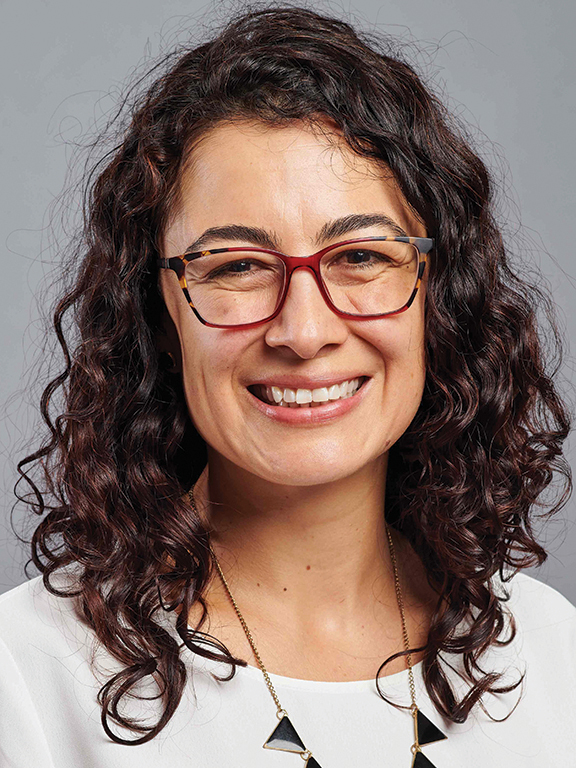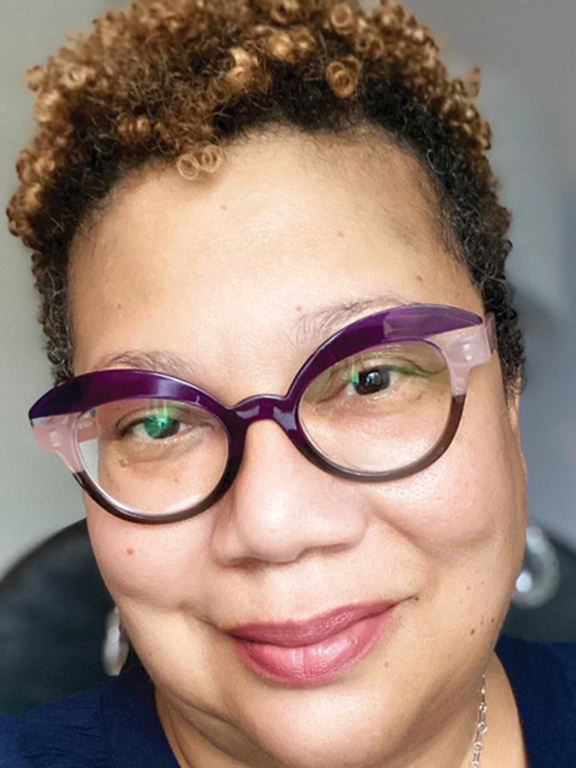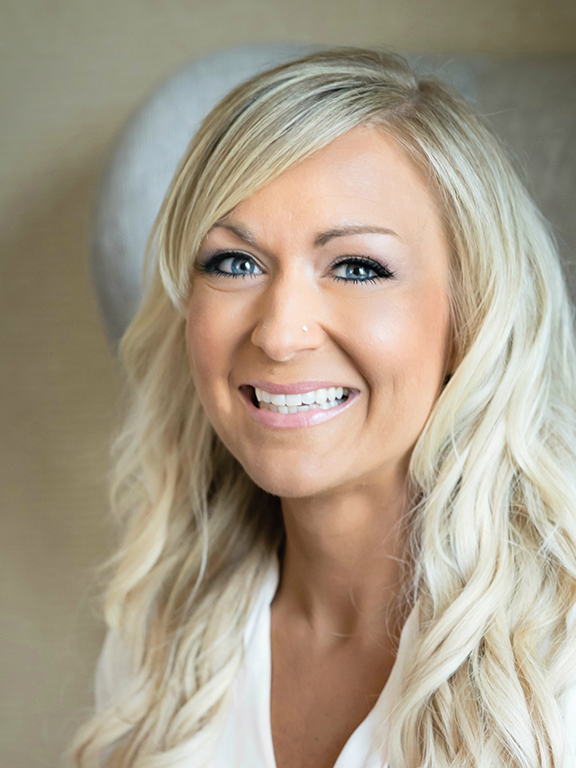Meet the (New) SOC Faculty, Part 2
Read Meet the (New) SOC Faculty, Part 1
Carol Ferrara
Assistant Professor, Marketing Communication
Will teach: Marketing Communication

Carol Ferrara is bringing her anthropological expertise to contribute to the humanistic and social scientific strengths of the Marketing Communication Department. She looks forward to combining her diverse academic and professional experiences in anthropology, diversity, pluralism, religion, education, and business in this new role, especially focusing on the ways that the social sciences can be leveraged to help make marketing and business better, smarter, and more socially and environmentally responsible. Ferrara has been teaching courses on Islam, anthropology, global cultures, and religion and secularism at Emerson College since 2015. During the 2019-20 academic year, she was awarded the Fulbright-EHESS Postdoctoral Fellowship to pursue new ethnographic research on education and national identity in France. Ferrara holds a Ph.D. in Sociocultural Anthropology from Boston University, a dual MA in Middle East & Islamic Studies and International Affairs from the American University in Paris, and a B. in International Business from the Rochester Institute of Technology. She is a co-chair of the American Academy of Religion’s “Religion in Europe” Program Unit, and is on the research editorial board of the journal EuropeNow.
ET: What do you want students to learn from your teaching?
CF: Above all, I’d like students to walk away from my courses with greater intellectual curiosity about the world around them, as well as some additional tools and ideas for how to learn more about what really inspires them and piques their interest. I like to think of education not as a means to an end, such as a degree or certificate, but as a lifelong journey of exploration, discovery, and evolution, with an abundance of surprises along the way. Whether it’s being inspired to take a new direction with a business idea, finding their way to more socially responsible marketing content creation, sparking a new passion, or just slightly opening their minds to a different perspective outside of their comfort zone, I want my students to leave my courses with a greater recognition and knowledge of the richness and diversity of the human experience and the skills to apply that knowledge to their professional careers.
ET: What was the last thing you learned?
CF: What a question! The Greek philosopher Heraclitus famously inspired the idea that one can never put their foot in the same river twice, meaning that things are constantly changing, including our perspectives. So the last thing I learned, as well as my perspective on it, has necessarily already changed a bit since I learned it. That said, I’ve learned quite a lot about U.S. presidents and the solar system this summer, thanks to my 4-year-old asking endless questions about things far outside of my wheelhouse.
For example, contrary to what I learned as a child, Pluto is no longer officially classified as a planet, according to new controversial standards, and there’s a new planet (Planet 9 or Planet X — also controversial) that may or may not have taken its place on the list, depending on which astronomer you ask. These are actually things I vaguely remembered reading about in the news a few years back, but, in the spirit of lifelong learning, I’ve had the opportunity to re-learn, update, and supplement this knowledge thanks to my son’s insatiable curiosity.
ET: What do you enjoy when not working?
CF: I really enjoy spending time outdoors — especially hiking with the family (in the Blue Hills or Middlesex Fells for example) or running solo, or even just dining outdoors or picnicking with friends and family.
Lina Maria Giraldo
Assistant Professor, Journalism
Will teach: Data Visualization, Data-Driven Storytelling, and Civic Media

Lina Maria Giraldo is a Colombian-born, Boston-based designer, interactive media artist, and storyteller. Her teaching focuses on interactive storytelling for social change through a diverse body of work, ranging from digital educational tools, grassroots storytelling, public installations, and screen-based computer-generated work. Her works explore questions related to identity, including a focus on Latino and Haitian experiences in the United States, and the environmental impact of consumption, including projects focusing on e-waste, use of plastics, and the extinction of birds. Previously, she was an artist-in-residence for the City of Boston (Boston AIR 2.0), a recipient from the Now + There accelerator program for creating public art in the City of Boston, and a recipient of the Creative City Grant. She was part of the award-winning educational website JFK50.org team, while working as an interaction designer at ESI Design. Her most notable interviewees are Madeleine Albright, Stephen King, Harry Belafonte, and Nancy Pelosi for the JFK Library. Giraldo is also the recipient of the Hispanic Scholarship Foundation Grant. Giraldo holds a Master of Professional Studies in Interactive Telecommunications (ITP) from Tisch School of the Arts at New York University. Her work has been covered in various media, including The Boston Globe, ABC News, The Artery, Artlink, WBUR, WGBH, and NPR.
ET: What do you want students to learn from your teaching?
LMG: Story first, technology second. I want the students to learn critical thinking, social listening, and to iterate, fail, and iterate again. I want them to learn to be flexible in changing times.
ET: What was the last thing you learned?
LMG: I’ve been researching new ways of engaging and co-creating with underrepresented communities on how to work online while having limited access to technology. Also during this pandemic, I’ve been learning from my students’ and my daughter’s resilience and perseverance.
ET: What do you enjoy when not working?
LMG: I love the outdoors: kayaking, gardening, reading, exercising, taking photos, and watching movies. What I cherish the most is playing board games with my family.
Gina Gayle
Assistant Professor, Journalism
Will teach: Visual and Multimedia Storytelling

Gina Gayle is a photojournalist, educator, and researcher whose professional work has taken her across the United States, as well as to Cuba and Italy, while previously working in New York City with numerous news organizations. Gayle earned her doctorate in Mass Communications from the S.I. Newhouse School of Public Communications at Syracuse University, with research interests in media credibility, innovation, new technologies, the future of photojournalism, and digital media entrepreneurship using experimental research, as well as applied research methods She has taught multimedia, photojournalism, entrepreneurship, and media management courses, with future interests in data visualization, AR/VR/360 storytelling, and entrepreneurial journalism.
ET: What do you want students to learn from your teaching?
GG: I want students to learn the foundations of journalism amidst the technological changes and advances. I, for one, grew up with a darkroom in my basement, so I have had to do a great deal of pivoting with technology. However the game stays the same! To provide information and to tell stories. My first love is the still image as a story. There is something so powerful in a still image. Then we add in the photo story, photojournalism, and multimedia storytelling, where stills, text, graphics, data visualization, and such deliver the information in such a dynamic way, when done right. The digital age now allows for more visuals than any other time in journalism, and of course, I am elated. Through all of this, combined with a strong journalism foundation, I strive to teach students how to tell powerful, credible, visually striking stories regardless of where in the industry they will be working. Let’s go!
ET: What was the last thing you learned?
GG: Just coming off of finishing my dissertation, defending my dissertation, and moving my family to a new city in the span of one month, I am constantly reminded of pacing myself. As I’m writing this, I have been in Boston for exactly two weeks now, and had to take today as a day to not go outside of the house and catch up with friends, on emails, phone calls, and Netflix as a verb. We wear ourselves out so easily.
The other thing I recently learned while finishing my degree is that what “it” looks like at the beginning of the journey is not what it looks like during and at the end of the journey. It’s a beautiful discovery, and now I understand not to be so anxious, tense, stressed, and afraid, because when you put in the good work it all comes together. It is a lesson I have grappled with during my life and career, but I think I finally got it this time.
ET: What do you enjoy when not working?
GG: Oh my, this is such a great question for me right now because even though I will be starting a new job, working in a new system and in a new city, I have this free brain space not taken upon by research and dissertations. So this may sound crazy, but now I can think of my own projects I want to do. Photography is so ingrained in me that it’s not even working anymore, it’s what I love to do. The other thing is my sons make comic books, and I was never great at drawing, so now I bought a bunch of drawing how-to books and I will enjoy the journey of learning how to draw or being really terrible at it. That’s another lesson, allow myself to F.A.I.L. (First Attempt In Learning) at something! YAY
Lauren Anderson
Assistant Professor, Communication Studies

Will teach: Sports Communication
Lauren Anderson earned her Ph.D. in Communication at Florida State University, with a cognate in Sports Management. Her research and publications focus largely on media representations of gender and race in sport, as well as the ways in which media shapes social and cultural values and (re)produces dominant ideologies. Currently, Lauren is working on a book project on media coverage of domestic violence in sport, as well as a critical media analysis of mainstream media coverage of Kobe Bryant’s death. A critical scholar at heart, her research agenda is driven by a desire for social change, which is also a large focus in her classroom teachings. Lauren has been actively involved in the field of Sports Communication for the past seven years, presenting research at the annual summit for the International Association of Communication and Sport and the North American Society for the Sociology of Sport, as well as the sports communication divisions of AEJMC and NCA. Lauren is also an avid sports fan. Born and raised in the Chicagoland area, you can always find her cheering on the Bears, Cubs, Bulls, and Blackhawks.
ET: What do you want students to learn from your teaching?
LA: I want students to realize that sports are so much more than games that we love to watch. There are many discourses of power interwoven in sports culture that are often brushed aside and not talked about — whether that’s discourses of gender, race, class, identity, sexuality, or ability. It’s important for Sports Comm students, as both consumers and producers of media, to truly understand sports from a critical lens.
ET: What was the last thing you learned?
LA: I’m currently reading Big Potential by Harvard psychologist Shawn Achor, and I love all of the positive psychology in his book. He shows how every element of human potential is influenced by those around us, and instead of competing with others (in the workplace, on a team, etc.), we should focus on helping those around us become better. In doing so, we not only increase the potential of the unit as a whole, but we reach new levels of potential ourselves. He also explains how becoming a “positive node” in your workplace helps those around you improve their creativity, productivity, and performance, and how it only takes a few positive nodes to transform an entire system. Great advice to live by!
ET: What do you enjoy when not working?
LA: I’m a huge sports fanatic, and watching football is one of my all-time favorite activities. I also enjoy being active, whether that’s lifting weights, yoga, going for a bike ride, or taking a long walk in nature.
Categories